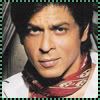
A New York Times Book Review by Charles Taylor, who is a columnist for The Star-Ledger of Newark.
The larger significance of the book is that a major American publishing house is bringing out a biography of a major foreign star, largely unknown in the United States. And that is remarkable at a time when newspaper and magazine editors and film distributors are increasingly reluctant to offer readers and viewers what they haven’t already heard about.
The state of foreign film distribution in America is disastrous right now. Strong work from new and established filmmakers continues to emanate from Europe and from all parts of Asia. But after winning raves at festivals, even the best of these films struggle for an American release.
Bollywood cinema, with its love of melodrama and lavish color and outsize emotion, with nearly every genre making space for six or seven songs, may not be the first thing that springs to mind when someone intones the phrase that remains a pedigreed arbiter of cultural sophistication: “foreign films.” But in a global economy in which India stands poised to play a bigger part, when the Internet and DVD’s are creating film audiences not bound by borders or by the caprices of film distribution, when some American multiplexes are giving over screens to Bollywood releases in order to lure America’s growing Indian population and when the stagnation of Hollywood sometimes makes the survival of movies as a popular art form seem an iffy proposition, Americans can’t afford to ignore Bollywood much longer.
At the moment no one represents Bollywood more than Shah Rukh Khan. It’s not just that this epitome of Hindi cinema is a Muslim, which makes Khan an unusual star. Part leading man, larger part buoyant goofball, Khan looks something like the offspring of John Stamos and Jerry Lewis. Without the dark undercurrents of the Bollywood superstar who came before him, Amitabh Bachchan, Khan claims, and Chopra agrees, that he represents the confident, successful Indian yuppie, the citizen of the world who is nonetheless recognizably Indian.
In “King of Bollywood” and in her previous book, a superb monograph on the wonderful 1995 Bollywood film “Dilwale Dulhania Le Jayenge” (“The Bravehearted Will Take the Bride”), which has never stopped playing at the 1,000-seat Mumbai theater where it opened 12 years ago, Chopra offers a brilliant reading of how Indian cinema, represented by “D.D.L.J.” (as its fans know the movie) and its hero Khan, has confronted the liberalization that came with an expanding economy, rejecting Bollywood’s previous view of the West as purgatory while at the same time expressing fear of waning Indian tradition and identity. The brilliance of Chopra’s reading of the film is that she argues for its simultaneous traditionalism and progressiveness, a dual but not contradictory approach that can be applied to some of our greatest mainstream movies, from “The Best Years of Our Lives” to “Schindler’s List.”
Chopra covers a lot of ground here. There is Khan’s story itself — his unlikely rise to fame; his wooing of his wife, Gauri, despite her parents’ objections; the predictions of failure when a few flops followed many hits; his finding himself under threat from the Indian mafia, which was extorting the country’s film industry. Still, I wanted more. Chopra hints that Khan’s extraordinary confidence may shade over into arrogance. And she hints of the horrendous pressure Khan finds himself under, referring to himself at one point as “just an employee of the Shah Rukh Khan myth.” And I wanted Chopra to examine how Khan, who can be a charming presence or an overbearing one, might be limited as his career proceeds. Most of all, I wanted to know if Chopra believes that a country contemplating greater corporate diversification might find its film industry damaged as ours has been by the triumph of a corporate mentality that possesses none of the old studio moguls’ love for movies.
But I wouldn’t have wanted any of this if Chopra weren’t good enough to raise the questions in the first place. “King of Bollywood” evokes a film industry that, whatever perils it faces, right now does what Hong Kong cinema did in the 1980s and ’90s, what Hollywood only intermittently does: approach the job of entertaining an audience without embarassment or apology, treating making movies as more than a future entry on a balance sheet. Hollywood still lives — if only occasionally in the American movie industry.
Source: NewyorkTimes























